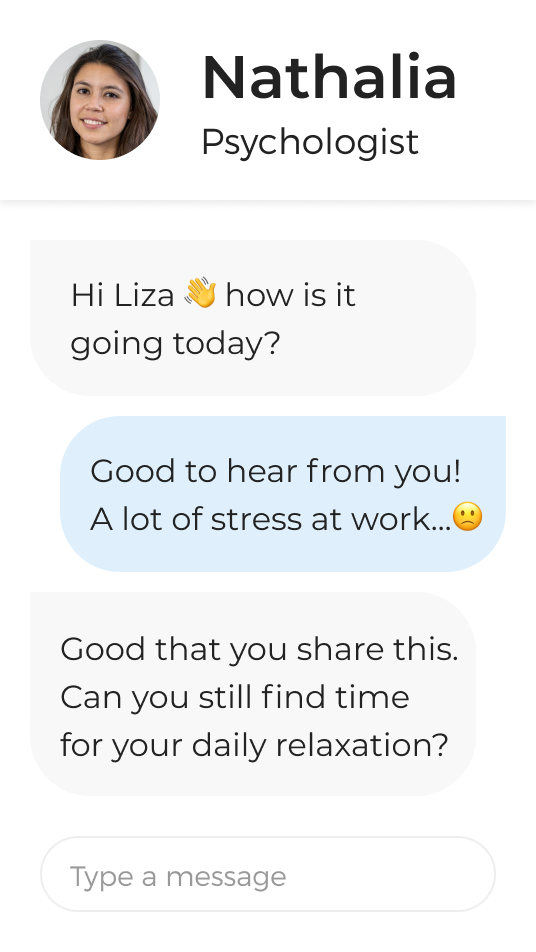But how can you tackle it in a constructive way and make sure that it’s helping you, instead of just draining your energy? Psychologist Paul Hessels explains how you can resolve conflict at work in a good and professional manner.
Why you don’t want to avoid conflict
Avoiding conflict usually leads to larger confrontations down the road, according to an article by PsychCentral. “This article is actually about romantic relationships, but the same basically applies to our work relationships,” explains Paul.
“The friction that arises when you disagree with someone helps you to understand each other better and to come up with better ideas together. Also, remind yourself that conflict is a subjective experience, it’s your perception of what happened.”
Talking about different viewpoints, ideals and opinions improves both the relationships and communication, amongst yourselves and within a team. The bottom line is that there’s nothing wrong with occasional conflict and differing opinions. Not even in the workplace.
Step one is not seeing a problem or difference in opinion as a disadvantage or setback but as an opportunity to approach things differently and to get to know each other better. This is something that will improve your cooperation in the long run.
Here’s something that might also be of interest: How to Reassure Customers During Conflicts (According to Psychologists)
Conflict at work
According to research by The Myers-Briggs Company (the company behind the famous 16 personality types), it seems that almost 40% of employees have to deal with conflict on a regular basis. The result is that managers lose about four hours a week resolving these mutual conflicts.
“This means it’s important that we teach people how to manage conflict constructively – maybe even to embrace it. Conflict is always going to arise. There are so many people and so many different opinions. The best way to tackle this is to learn how to talk through conflict,” explains Paul.
The main reason that disagreements with colleagues or managers arise is poor communication. The same research by Myers-Briggs demonstrates this. Harvard Business Review adds a further three triggers: lack of transparency about performance requirements, unreasonable time expectations, and unclear task and role expectations.
“Peace is not absent of conflict. It’s the ability to handle conflict by peaceful means.” Ronald Reagan
But I don’t like conflict…
There aren’t that many people who consciously learn how to properly resolve conflict – whether it’s a minor confrontation or a big fight. That’s the reason we prefer to avoid conflict.
If you avoid conflict because you’re afraid of hurting another person’s feelings, we call this conflict-avoidant behaviour. This often stems from a fundamental fear of not being seen as nice and likeable. That’s only natural – we’re social creatures after all – but it’s not always helpful.
Possible characteristics include that you’re afraid to express yourself, you’d rather deny that there is conflict, you make jokes during confrontations, you prefer to keep your thoughts to yourself if you disagree with somebody, and you want other people to like you.
You do all of this to keep the peace, but ultimately it means that you aren’t being kind to yourself. If you avoid conflict, you don’t resolve any actual issues and you end up suppressing your emotions. According to research, this can have an effect on your physical and mental health.
Paul: “In the short term, you get something out of avoiding conflict; you don’t have to deal with unpleasant feelings for a while. In the long term, the conflict continues to simmer beneath the surface. Eventually, the pain of avoiding it becomes greater than the pain of conflict.”
💡 This article by PsychCentral looks at conflict-avoidant behaviour and what you can do instead of it.
Talking through conflict with a colleague
We’ve established that it’s important to face confrontation. This is the first step towards talking through conflict effectively.
The following steps will help you to tackle conflict constructively. The basic principle is: change your perspective and embrace the conflict.
- Make sure you have time and space to talk about it. It might feel low-key to bring it up with the other person at the coffee machine, but that’s often not the best option. You don’t want to have to cut the conversation short because the other person needs to rush off to a meeting. Make sure you’ve chosen a place and time where you can express yourself freely. Whether you schedule it or agree with it amongst yourselves, that’s up to you.
- Focus on behaviour and events. Don’t make it about personality: either the other person’s or somebody else’s. Talk about the event and how it affected you, communicate from a place of feeling and don’t point the finger.
- Listen. Listen, in order to understand the other person better. Ask questions. Try not to interrupt the other person and make sure you understand where they’re coming from. It might help to each agree that you’ll both tell your side of the story without interrupting one another. This forces you to really listen, instead of getting defensive.
- Make it clear where you agree (or disagree) with each other. Confirm with the person that you’re on the same page. See if you can meet in the middle.
- Discuss how you want to resolve things. What is the most important thing to resolve right away? How do you want to approach that?
- Keep communication open. Now that you’ve discussed the conflict, you’ll want to maintain good communication. Offer compliments when they feel genuine and look for moments where you can both discuss (and appreciate!) your progress.
Need some guidance with your particular situation? Together with a psychologist, you’ll discover how you can manage your relevant thoughts and feelings.







